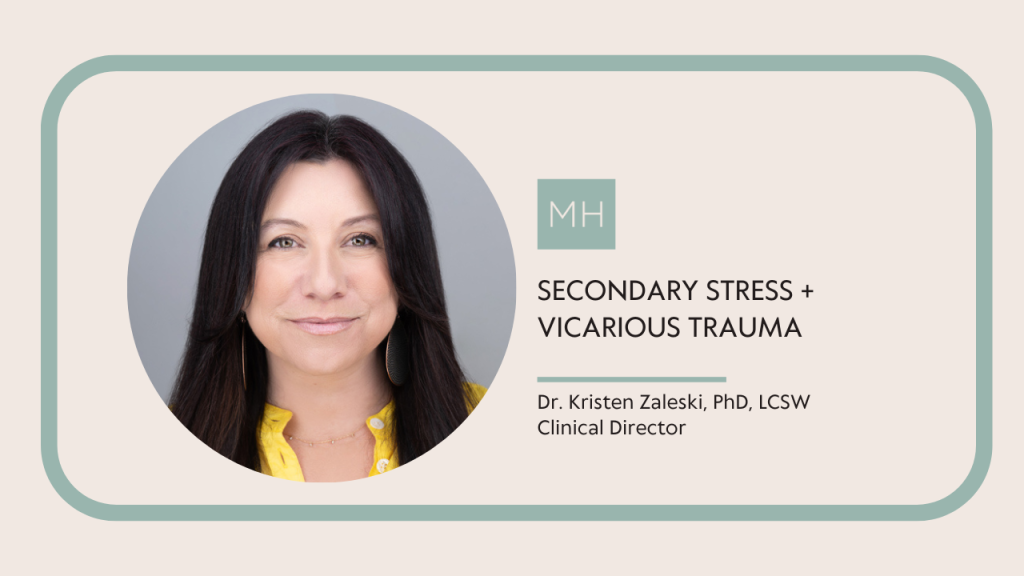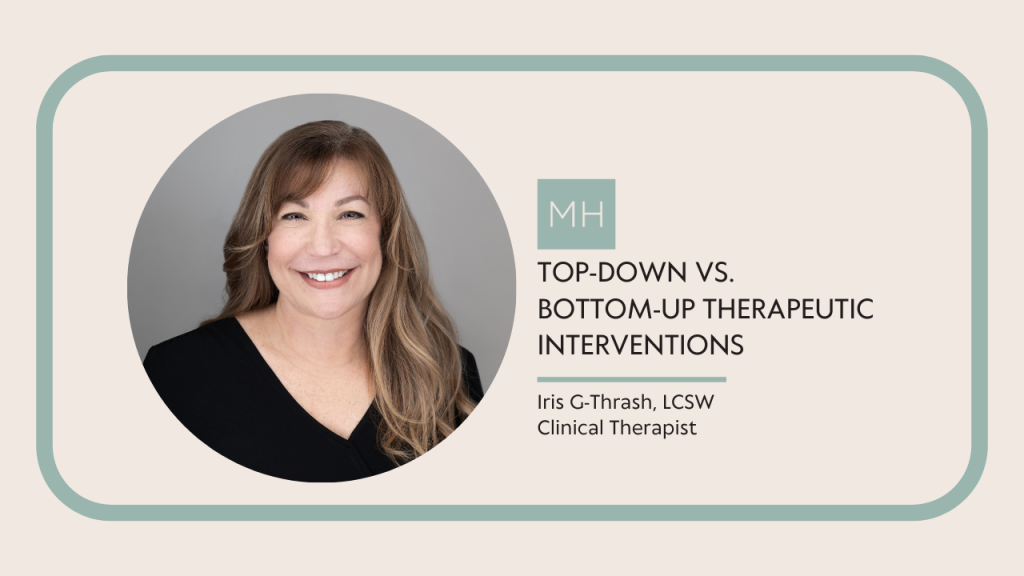WHAT ARE ANXIETY DISORDERS?
People with anxiety disorders suffer from overwhelming feelings of worry, panic, or fear that interfere with their ability to function. Symptoms vary, but many who have been diagnosed with an anxiety disorder report:
- Feeling tense
- Insomnia or trouble sleeping
- Increased heart rate
- A sense of impending doom
- Low energy
- Inability to focus
- Gastrointestinal problems
- Inability to focus on anything outside the worrisome problem
- An overwhelming desire to avoid anxiety-producing situations
There are several types of anxiety disorders, yet all share a common symptom—an overwhelming feeling of worry or fear which causes distress and difficulty functioning.
Types of Anxiety Disorders
Here are some of the more common anxiety disorders (though the list is not all-inclusive):
GENERALIZED ANXIETY DISORDER
A persistent feeling of worry about everyday events and circumstances. The worries can be disproportionate to the actual problems. Individuals with GAD report difficulty managing their symptoms. Symptoms of generalized anxiety disorder can include:
- Tension
- Fatigue
- Irritability
- Inability to focus
- Forgetfulness
- Stress-induced muscle pain (chronic backache, sore shoulders, etc.)
- Insomnia
PANIC DISORDER
Involves sudden, overwhelming feelings of anxiety and fear, which can be both recurring and unpredictable. Though a panic attack often doesn’t last long, the experience is so frightening that individuals avoid potentially triggering situations. Symptoms can include:
- Hyperventilation
- Chest pain
- Heart palpitations
- Nausea
- Dizziness
- Shaking
- Sweating
- Feeling disconnected to one’s surroundings
- A strong desire to flee
PHOBIAS
Feelings of overwhelming fear and anxiety related to specific situations, activities, people, animals, or things. The fear is out of proportion to any danger or risk. In some cases, the fear is limited to a specific thing that is potentially avoidable, such as ophidiophobia, or fear of snakes.
Phobias such as fear of heights (acrophobia) or fear of crowds and situations where one may not be able to easily escape (agoraphobia) can significantly hinder a person from working, socializing, or participating in other activities which most people enjoy.
Symptoms common to phobias include:
- Irrational fear
- Avoidance of the trigger that causes the fear
- Physical symptoms such as shaking, racing heart, nausea, and feeling panicked
Physical symptoms are similar to those experienced with panic disorder. However, unlike panic attacks, phobias have specific triggers.
SOCIAL ANXIETY DISORDER
An overwhelming fear of being judged, ridiculed, or otherwise rejected by others in social situations. Social Anxiety Disorder is more intense than ordinary shyness and can cause the sufferer to avoid social situations such as job interviews, social obligations, and performance situations. When the sufferer does participate in a feared social situation, symptoms can be severe, including:
- Difficulty breathing
- Tremors
- Nausea
- Blushing
- Blank mind
- Dizziness
- Sweating
- Tension
Onset often occurs in teenage years. This disorder frequently runs in families, although researchers have not determined whether its cause is genetic, environmental, or a combination of factors. Statistics show that over 15 million people in the United States suffer from SAD, a disorder that can affect a person’s entire life, preventing the sufferer from engaging in many social activities and professional occupations which involve interacting with people.
Many people with Social anxiety disorder do not seek help. However, this disorder, which hinders the sufferer from living a full life and reaching their potential, responds well to treatment.
ANXIETY TREATMENT IS AVAILABLE
At The Mental Health Collective, we recognize that the best treatment for anxiety disorders is individualized to each patient’s unique experience. Some people suffer from more than one mental health condition, such as depression combined with social anxiety or panic disorder. Patients respond best when treatment involves a combination of appropriate medication and therapy, as well as lifestyle modification. This is why we’ve created a comprehensive and state-of-the-art residential treatment center for anxiety in Newport Beach (Orange County), California.
Treatment at the Mental Health Collective begins with a comprehensive bio-psycho-social evaluation by a psychiatrist and a board-certified psychologist. After the initial evaluation, an integrative and individualized treatment plan is implemented. We support each patient throughout treatment, closely monitoring their response to medications and therapy in order to make adjustments where necessary.
We believe treatment should go beyond symptom reduction to help each patient achieve the best outcome and enjoy a truly healthy and fulfilling life. Our integrative treatment modalities can include activities like:
- Yoga
- Mindfulness practices
- Journaling
- Nutrition
- Exercise
- Massage therapy
- Art
When you come to The Mental Health Collective for help with an Anxiety Disorder, our experienced and dedicated staff of doctors, therapists, and other mental health professionals will guide you through treatment, helping you to go beyond symptom reduction to achieve your full potential for a balanced, healthy and joyful life.
Many people with anxiety disorders suffer for years before seeking treatment. But we are here to help.
DO YOU HAVE A QUESTION?
Send our team a message or call 888.717.9355

